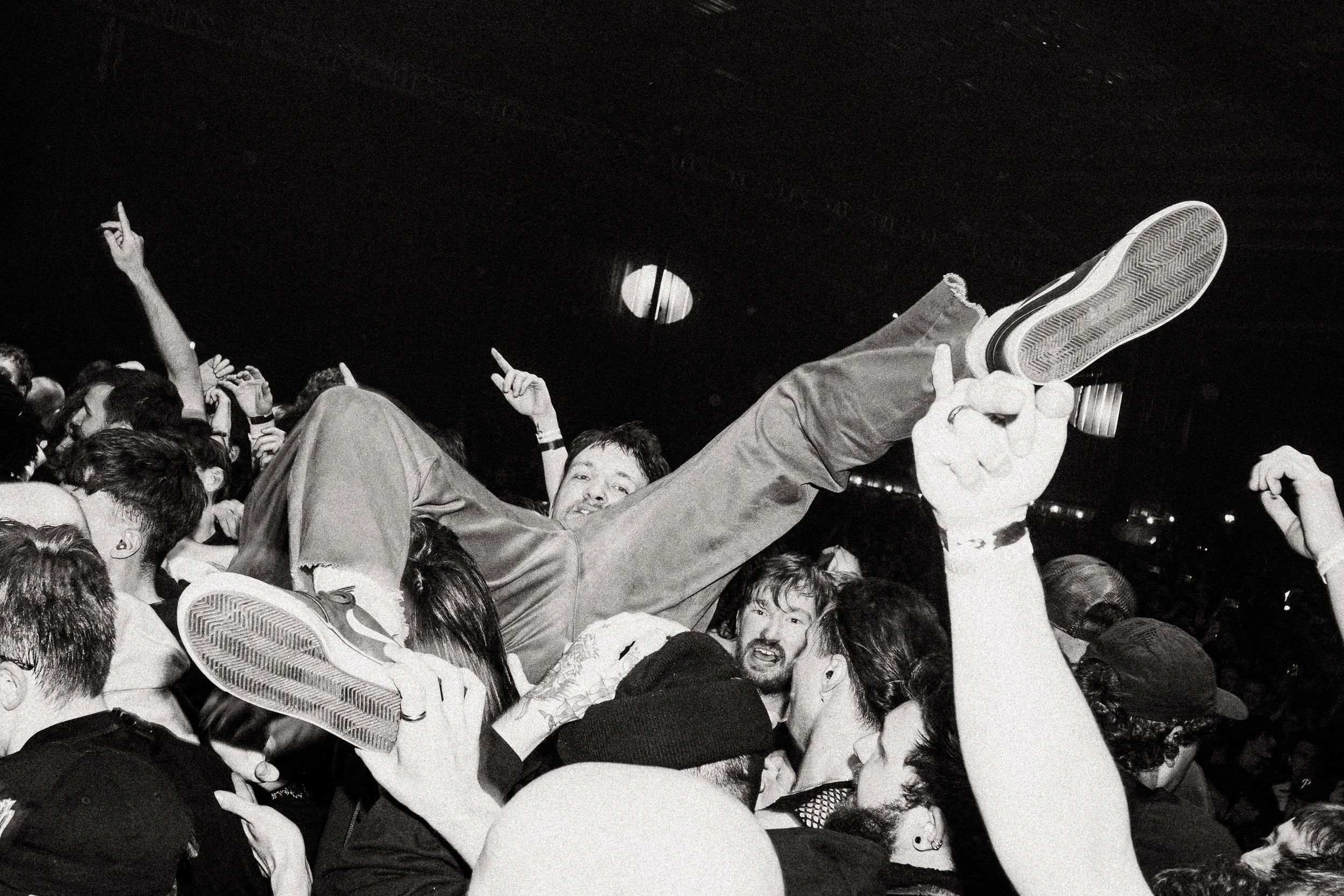Album Review: Being Dead - 'When Horses Would Run'
Texas three-piece Being Dead have cultivated an eccentric, imaginative soundscape on their mystifying debut album ‘When Horses Would Run’.
From a little corner of Austin emerges Being Dead, a rising indie rock trio with psychedelic undertones. To confine the band to this genre would be a disservice as they have procured colourful landscapes anchored in a blend of punk, surf rock and freak pop. Fronted by best friends and multi-instrumentalist duo Falcon B*tch and Gumball, the moniker Being Dead appears to be an antithesis to the lively, whimsical energy that serves as the foundation of their craft. The new album follows their 2019 EP ‘Fame Money Death By Drive By’, an exploratory project that offered an early glimpse into the personalities of the close-knit pair. ‘When Horses Would Run’ combines vivid sketches of inventive storytelling with dynamic instrumentation to create the ultimate labour of love from a cherished friendship – a striking debut.
The album begins with ‘The Great American Picnic’. The track seems aptly named, as it is charged with resounding Old Western-style guitar melodies and dreamlike vocals with a timeless quality. The vocal arrangements are evident early on as Gumball delivers a more grounded, direct tone, meshing harmoniously with the saturated cadence of Falcon B*tch. With brief rhythmic transitions reminiscent of the dark psychedelic sound featured in Strawberry Alarm Clock’s ‘Curse of the Witches’, ‘The Great American Picnic’ is an excellent introduction to the novelty of the Being Dead universe. ‘Last Living Buffalo’ follows, a demonstration of the band’s whimsicality. It opens like a slow tread through a quiet frontier with warm, short strums and whispery harmonies. This blossoms into trotting percussion and bright plucks to emphasise steadfast calls of “onward, buffalo!”. This plateaus into a laid-back, surfy guitar groove. Being Dead invites the unexpected, and the sound changes with the narratives they construct. In an apparent dark end for the last buffalo, the duo explodes into screams of “you killed him!” agitated by distortion and crashing cymbals.
‘Muriel’s Big Day Off’, the first single taken from the album is equally mercurial, it starts heavy with punky vocals but is dotted with light, beachy surf pop harmonies. The track juggles multiple styles as jazzy keys settle in, guided by building percussion and capricious riffs. In a recent interview with When The Horn Blows, the band stated that ‘Muriel’s Big Day Off’ “…lays the groundwork for the greater narrative of the album.” Pulling in values of friendship and openness that seem foundational for the band, the track represents the album’s intention of exploring new worlds with friends unrestrained. ‘God vs. Bible’ seems to slip in as an interlude, a simple hymnal that precedes the clamorous grit of ‘Come On’. Title track ‘When Horses Would Run’ takes a different approach altogether, with a kaleidoscopic fusion of a blinking electronic melody, whirling synth lines and cosmic vocals.
In case of any uncertainty up to this point, the band takes the opportunity to formally introduce themselves in ‘We Are Being Dead’. A quirky jingle, uniformity is never what the band aims for. They are having a good time, and they hope that listeners are too. ‘Misery Lane’ and ‘Living Easy’ lose the vibrance of the previous tracks as Being Dead tap into their sullen side with gloomy lyricism and darker instrumentation. The end of ‘Living Easy’ perks up with a bright, hopeful tone that prepares for closing track ‘Oklahoma Nova Scotia’. An ode to the great state of Oklahoma fit for a midwestern road trip, lush harmonies and hypnotic, folky textures create a retro feel.
For Being Dead, making music is a process that is playful and boundless as reflected on ‘When Horses Would Run’. It is a joyfully peculiar smorgasbord of sound that is ultimately interesting. The offbeat outfit has done well to put together a unique collection of songs that leaves much to anticipated, but there is never a moment where what comes next can be predicted.
Words by Kayla Sandiford












